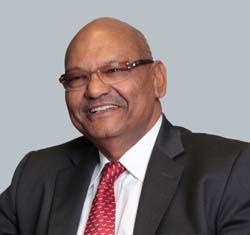 I was surprised at how vocal the Business Leaders were at 10 Downing Street on 18th September 2013 on the occasion of reception hosted by UK Prime Minster and George Osborne, Chancellor of the Exchequer. It was an august gathering. Andrew Feldman (Chairman of the Conservative Party & Chairman of the Party Board) spoke first and said how important business people are in the UK for development. The Chancellor even spoke about how to reduce the debt of the country and invited suggestions.
I was surprised at how vocal the Business Leaders were at 10 Downing Street on 18th September 2013 on the occasion of reception hosted by UK Prime Minster and George Osborne, Chancellor of the Exchequer. It was an august gathering. Andrew Feldman (Chairman of the Conservative Party & Chairman of the Party Board) spoke first and said how important business people are in the UK for development. The Chancellor even spoke about how to reduce the debt of the country and invited suggestions.
Finally the Prime Minister addressed all and clearly stated the importance of developing infrastructure of the country, manufacturing sector, natural resources etc.. He also came forward to engage him where his presence can help develop UK Company’s businesses.
The Prime Minister was quite vocal on how NGOs and the media some times are against development, and how the country has to fight because, unless we develop our shale gas, oil & gas, freight corridors and new highways, the country cannot take the economy forward. He also said that the only way the UK is coming up, as an economy is due to almost everything been privatized in the country and he was very thankful to all the business leaders & CEOs of the corporations.
In India, we have a similar situation, where we may be having more than 250 state and central government companies. A lot of them must be listed and have a very good structure, but these companies are not progressing as were to be expected. Why not divest 51% of these companies in the market, with the caveat that no one can own more than 10% of these companies. The most important factor is the employees; they can be given share in the companies. This will bring security, as well in terms of financial as they would be getting more money than they currently draw, and their interests will be aligned. The most talented, professional management will be identified and fully incentivised so they can create world class capacities and quality with the possibility to make the company 10 times bigger, including creating huge valuation. With this capacity companies may generate employment for a further 50 million people.
Who can stop ONGC becoming another EXXON and SAIL be like VALE.
When companies like L&T, ICICI Bank, and HDFC Bank can run world class organizations without being owner driven, I am sure these over 250 state and central government owned companies will also follow the example made by them and create tremendous value for themselves. The funds generated can be used by the government to strengthen infrastructure.
Ultimately, the government should be looking to divest further and hold only 26%. The Supreme Court has already cleared way by asking the government to auction Kolar Gold fields and the Bharat Gold mine. This should be done in 90 days’ time, on a revenue sharing basis. With today’s new exploration techniques we will find a lot of gold and will be partially self-sufficient. The auction stand by the government will invite a number of foreign companies.
Aluminium is a natural metal to be produced in India, with an unused reserve of about 3000 million tonnes of bauxite. At the moment we’re producing only 2 million tonnes of aluminium, however we have the right potential to produce 15-20 million tonnes, this green metal will only replace wood. We have the bauxite, we have the coal and we have the water, what else is required ? This will create 50 million jobs as a full production chain of bauxite, alumina, aluminium smelting, coal mine, power plant, engineering construction, capital goods, and manufacturing for downstream will become effective. This is bound to change the face of modern India.
The country is struggling with ever mounting import bill. This year I believe we have imported $19 billion of coal. The government should look into auctioning of coal blocks. Coal India is sitting with a lot of coal blocks, why not government decide to sell 51% of these various coal blocks to produce coal in India.
The change is the need of hour. It is said, what you can do it today, don’t leave for tomorrow, the right time never comes back. As for India, the change is evident.
Anil Agarwal